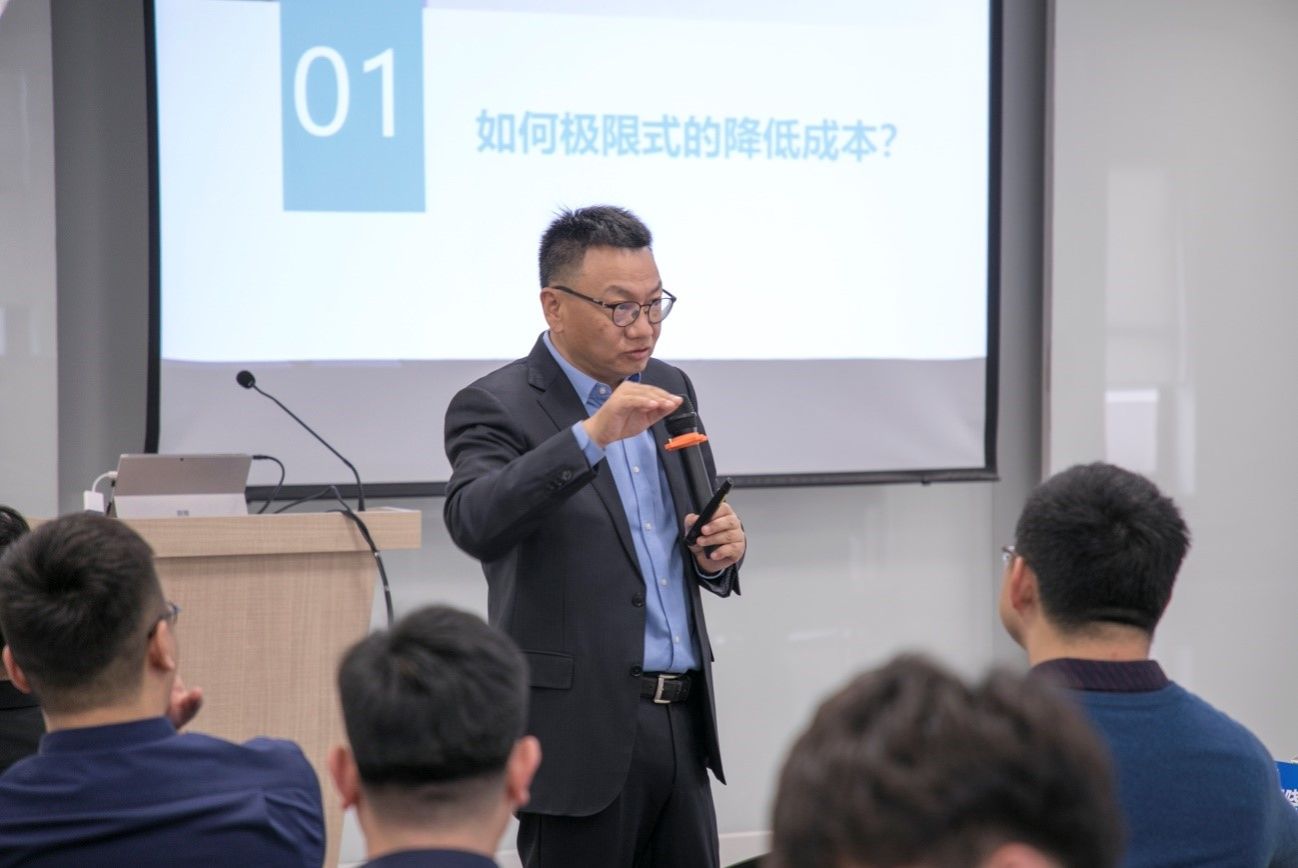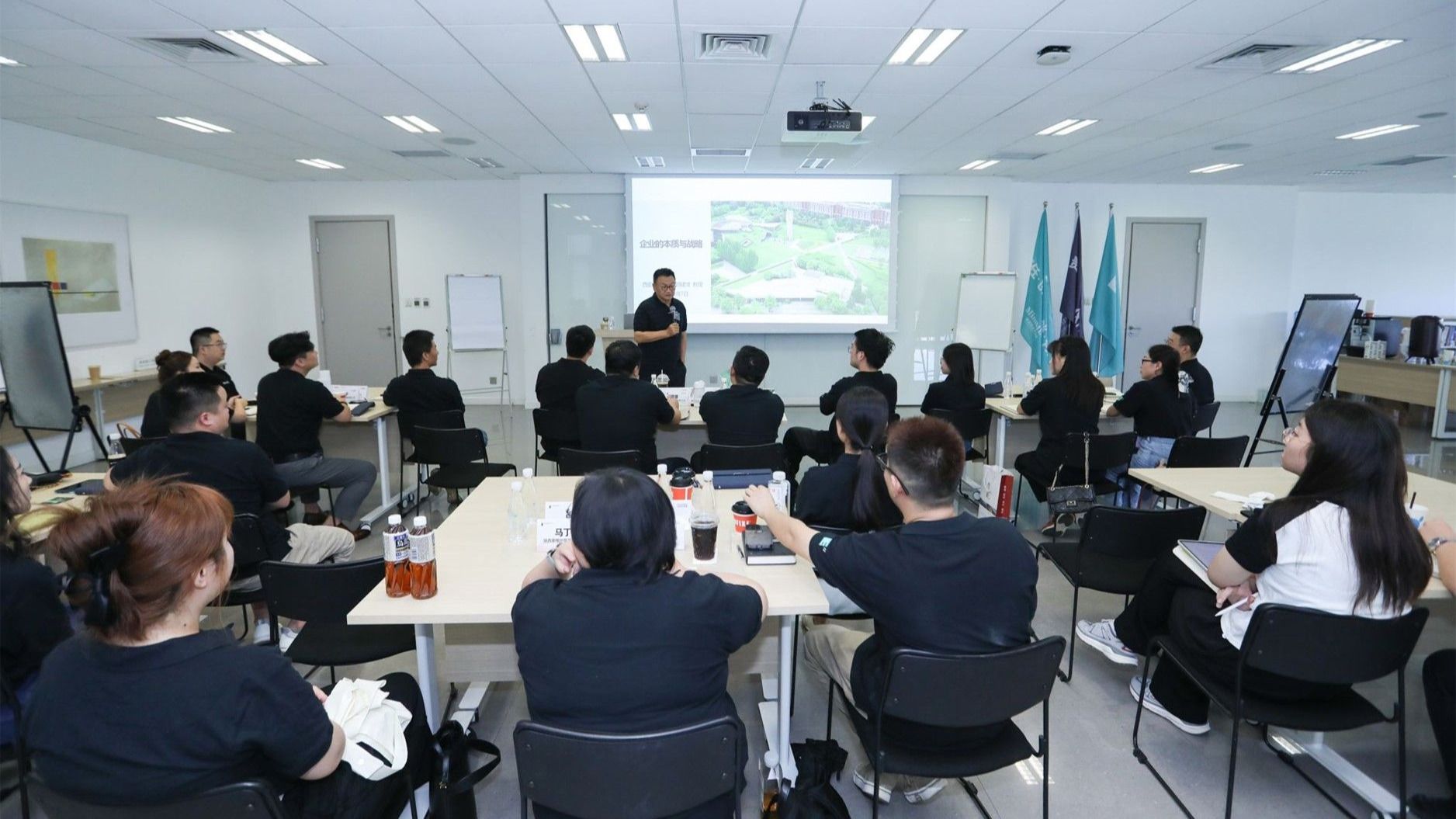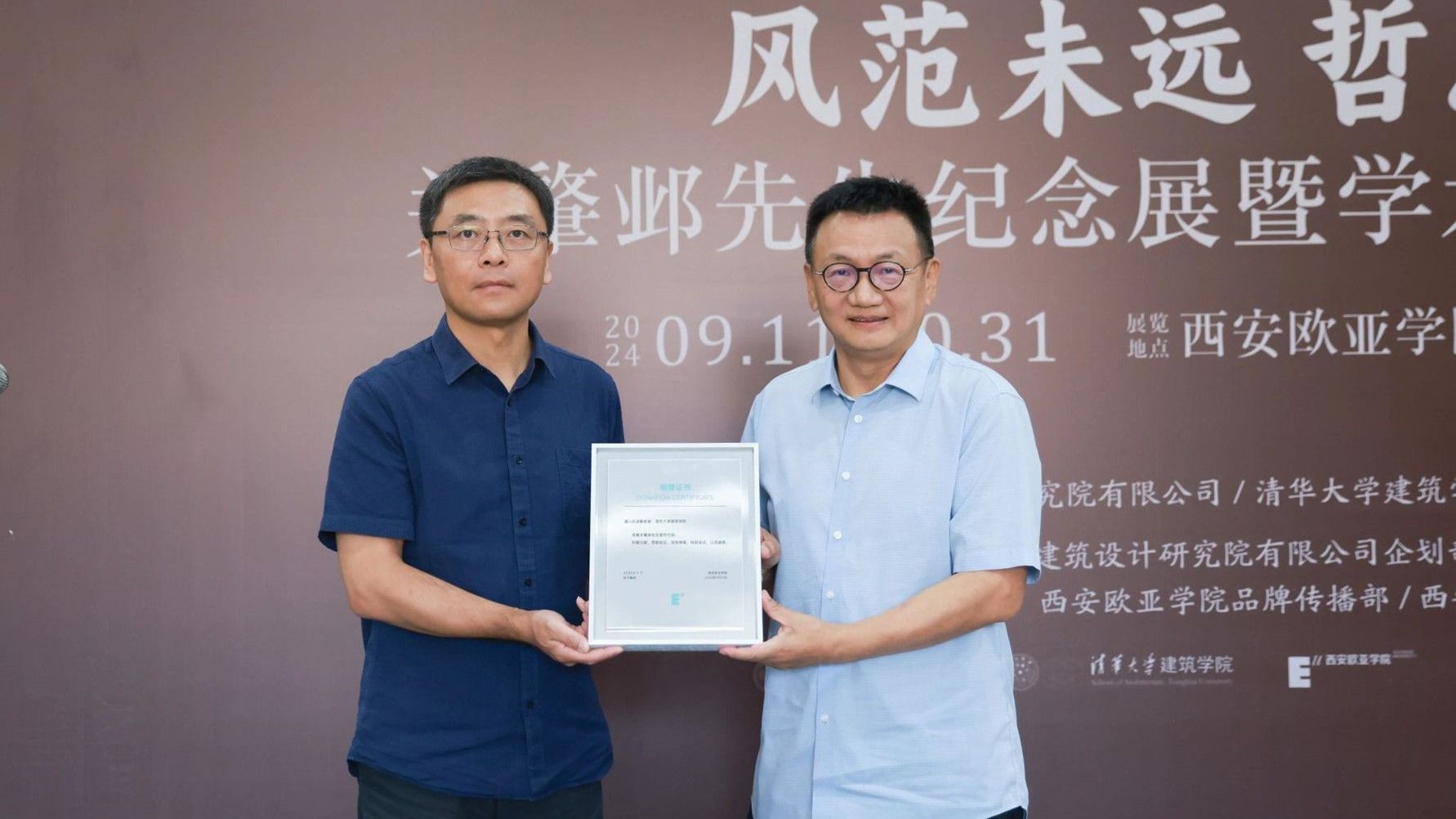
Recently, we took a training and consulting program for a government agency. During the discussion about the contents of the training program, our clients repeatedly emphasized that it should be practical and not too theoretical. However, when we talked about the client's demands within our team, everyone just smiled, because we used to feel the same many years ago. Nowadays, the word "theories" seems to have become a sarcastic word.
Make a Difference to Lives
I suppose that they've invited university teachers to do training before, and most of the teachers made it too theoretical, far from what our clients do in their daily work. The same things happen in many government agencies and enterprises. To be honest, this is indeed a common problem among our university teachers and also becomes a cognitive trap for many managers in enterprises.
Even some theorists have realized it. On January 3, 1950, Drucker's father took him to visit Schumpeter, who was seriously ill. Schumpeter, a 66-year-old man at that time, said to Drucker's father, "I know that it is not enough to be remembered for books and theories. One does not make a difference unless it is a difference in people's lives." This was an unforgettable lesson for Drucker so he put it in his memoirs "Adventures of a Bystander". It also had a great impact on his future career. He had been doing field study and research in enterprises and also wrote many books. Later, when he became the founder of modern management science, he was still doing consulting and training for enterprises. He'd rather give up his achievements in the academic world than write according to the so-called norms. He repeatedly emphasized that "Management is practice, and management theory must come from practice and be adapted to practice."
An Unforgettable Lesson
It's common thing that managers don't have much interest in theories, and I'm one of them. About 20 years ago, an investment fund agency said that they would like to invest in our school. I doubted their purpose and proposal, so I went to my friend, Chen Jian, who was the deputy director of the Administrative Committee of Xi'an Hi-tech Industries Development Zone, and he suggested that I should study at CEIBS, known as China Europe International Business School. I majored in engineering at university and was at the peak of my career at that time, so I was somewhat resistant to theoretical studies. However, with Chen Jian's sincere advice and driven by the desire for a higher degree, I went to CEIBS in the fall of 2005. Unexpectedly, I was blown away by the first course I took at this school.
The course was taught by Professor Robert Eng from Babson College, the world's top-ranked school in entrepreneurship. It's more like a business game than a course. He divided 150 students into 20 groups, each representing a company that produced chips, and these companies competed in a world called TechMarK which simulates the four planets of the universe—Venus, Jupiter, Mercury, and Mars. There, each planet represented an industry, and five companies in each industry competed against each other. Besides, each person in the group was the CEO or CFO and assumed responsibility for his or her own business.
After Professor Eng introduced the rules of this game to the students, his teaching assistant gave each group a stack of materials to discuss. The material was about the business decisions of multinational enterprises, such as investment, product positioning, market research, manufacturing, logistics, brand promotion, financial analysis, and so on. It was not too difficult to work on these projects, because the students were all senior executives, and each of them spoke clearly and wisely. But the key was to convert the specific content of the business decisions into about fifty pieces of data, fill out the form, submit it, and keep a copy for ourselves.
There were six consecutive fiscal years in the game and the data should be handed in seven forms in three days. After these forms were submitted, the teaching assistant uploaded them to the laptop and immediately got a financial report for each group as well as the market performance. The reports also ranked the overall performance of each group. The results of these reports came out just after lunch or dinner, which was when the results of the company's business decisions, financial condition, and market performance became evident. Then, Professor Eng reviewed and analyzed the market condition and business performance, using management terms like "strategy", "positioning", "market", "pricing ", "investment decision", and "financial accounting". His words made many managers who are used to making "captain's calls" quickly discover their shortcomings.
After two days of class, I was completely confused. I seemed to have heard all these terms before but didn't quite understand what they meant. It was also in this class that I first learned that managers have to check three financial statements—income statement, balance sheet, and cash flow statement. Wang Jianlin, the founder of Wanda Group, once said, "Nothing ventured, nothing gained." And my experience was a perfect illustration of it. It turned out that my so-called career peak was a decision made on a whim by an ambitious and bold young man. I just got lucky, and higher education was in rapid growth right now so I didn't feel it was the right time to leave.
To be honest, I wasn't entirely convinced. I thought it was a game about luck. During a break, I asked Ms. Sun Yi, the teacher who supervised our group, if she were the one trading and filling out the forms, and how sure she would be that she could win. And Ms. Sun said, "One hundred percent. If I compete with you guys, I'll be the one who wins, and I will even capture a big market share." She also told me that Babson College had been developing this course and this software system since the 1970s. Professors from several disciplines, including the Science of Strategy, Marketing, Enterprise Financial Management, and Finance, had been working on this project for more than 40 years. And every few years, there would be updated versions of the course and the software.
From the third day on, I gradually got a clue. And by the last two rounds of the game, I seemed to get it! I thought that I finally knew something! I had a different sense of the system, the decisions, and the data. In the end, our group's stock ranked in the middle of the 20 groups. Even though I was just there to make up the number, I was lucky enough to get a course certificate and credit for it. But I felt a bit guilty because if Professor Eng knew that I hadn't even read those three statements about finance, he might have withdrawn my certificate. In fact, when you learn something, it is more effective to "just be there" than to study around the clock. The former is characterized by the fact that students learn through practice, mistakes, and teamwork.
Stories After Class
Although I was too stupid to get the course, I knew its value. So I asked Ms. Sun if I could offer this course to the management of our school. She said that this was the business that Professor Eng's China team was in charge of, that they had offered the course to dozens of business institutes in China, and that it was open to all types of companies, including listed companies, private enterprises, state-owned enterprises, and multinational enterprises. Without a second thought, I booked the course at once. Now, more than ten years later, we still invite Professor Eng's team to teach the course to our school management and teachers from time to time.
In addition to purchasing this course for management and teachers, we've also purchased a similar course system developed by domestic companies. This practical course has also become compulsory for students of the School of Business Administration of Xi'an Eurasia University. Every year the school organizes the students to participate in various competitions in business management. In the beginning, teachers were reluctant to teach this course, because it was defined as a practical course, and such courses are usually not appreciated in ordinary universities. Besides, the workload of teachers of this course in general is less than that of theoretical courses.
But now we have adjusted the school's system for this. The teachers' perception of this course has changed drastically. Program-based learning and case studies that integrate theories and practices have become very popular on our campus.
In 2005, after our management took the course, Xi'an Eurasia University started to try to build its data system for decision-making. Now, the 14th Five-Year Plan of the university, the corresponding eight sub-plans, and the plans of all the schools in our university are supported by a thorough data system. Data systems have also been established for organizational performance assessment, faculty performance assessment, and student learning and growth.
This course also has another important effect that both shocked and terrified me. As I took subsequent courses, I gradually realized my shortcomings and saw the huge gap between Xi'an Eurasia University and CEIBS. Of course, the tuition fees of the two schools were also hugely different. Therefore, during my study, I restrained the urge to bring in investors to continue the expansion of Xi'an Eurasia University. I shrank the scale of investments and the size of the school in time to reduce the debt ratio of the school.
In the last decade, we have found the goal and direction to improve the quality of education and teaching, and also realized that our school, at this stage, must change from opportunity orientation to mission orientation and strategic orientation, and focus on improving the quality of teaching. Our school had neither witnessed leapfrog development nor dared to make diversified expansion. We should move forward with vigilance and gratitude. And fortunately, after all these years, we are still standing here.
Today's College Teaching
Why do I still talk about this course even now? Because many years after I took the course, as I continued to study educational theory at the Institute of Education, Xiamen University, I realized the innovation of the course and the pedagogy behind it.
First of all, it breaks the stereotype of course learning. It is a business game, a tough competition in which learners need to invest more than ten hours a day. At the same time, they quickly receive feedback and comments on their performance. This means that the course energizes and excites students.
The course integrates theoretical knowledge from various disciplines, including strategic management, organizational behavior, and marketing, and has undergone more than 40 years of development. Its core objective is to develop learners' competencies regarding data-based decision-making.
It is a rehearsal of real business operations, helping you understand the full picture and essence of business competition and master the connections between various sections in business management practices such as strategy, marketing, manufacturing, and finance. It also lays the foundation for the subsequent course and enhances students' strategic thinking skills.
This course allows each learner to play the role of a manager. In this game, you don't need to be very thoughtful or have all the relevant knowledge. Instead, you are expected to play to your strengths under the guidance of organizational goals and the role you play, manage time, communicate effectively and drive team growth.
From the academic perspective of college teaching, this course uses Jean Piaget's Constructivist Learning Theory—situation, collaboration, dialogue, and meaning construction. Instead of relying on memory to remember theoretical knowledge, learners construct a system of relevant knowledge in their minds. It does not provide students with answers to questions but allows them to use various theoretical knowledge to face complex business issues and constantly make difficult choices. It develops students' critical thinking skills—to keep questioning, to embrace different perspectives, and to take responsibility. Another feature of the course is that it adjusts the course content and software version according to different training objectives, to simply and efficiently implement the OBE model, known as Outcome Based Education. This course adopts a progressive learning approach, with a different learning focus at each stage, and its theoretical basis comes from Lev Vygotsky's Zone of Proximal Development, which is also a common practice used in all kinds of game-based learning designs.
Managers who have studied these courses will no longer struggle with the contradictions between theories and practices. And the designers of the course have already provided a solution—a perfect integration of management theory, business operation, laws and regulations, and teaching theory. Of course, there are also shortcomings in this systemic and integrated course. Students cannot study a specific section in depth and detail, and it doesn't assess the performance of each learner in the same way as a traditional course or ensure that each learner in each course is taught and cared for. Isn't this the reality of our daily work?
In fact, such courses do not only exist in the School of Business Administration. Many of our colleges begin to widely introduce contextualized, digital, game-based, and integrated program-based learning models in such disciplines as construction engineering and information engineering.
Managers and parents have been out of college for many years, and most of them don't understand how Business Education is taught in today's international universities, nor do they know what the "student-centered" principle of international universities means. They think that students are going to university mainly to get a diploma or to improve their personal qualities. And they are still looking at today's university education with the same old experience, which is why I wrote this article. As far as I know, teaching in other disciplines is also generally confined to the traditional model—teachers do the talk and students just listen. So I hope this article will inspire teachers a little.
Conclusion
I'd like to thank Mr. Chen Jian for his guidance and Professor Eng and all the professors of CEIBS for their selfless teaching. I miss the happy time with my classmates of CEIBS Beijing Class Three of 2005, and I cherish the continuous communication and growth with the members of the CEIBS Shaanxi Alumni Association. You have made a difference in my life and made Xi'an Eurasia University achieve "pluralitas in unitatem". It is also you who gave me the chance to write these words, talk about the past and present, and share my personal experience with you.







